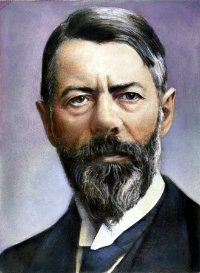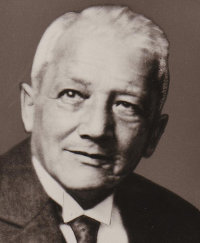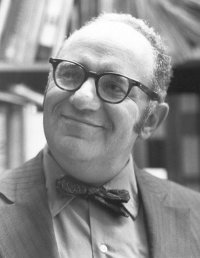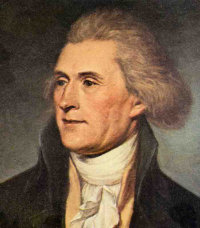
Government is:
- the act or process of governing a human group or association.
The colloquial definition found in standard dictionaries. This includes governance of both voluntary associations like clubs and compulsory political associations such as States.
- a human association for the purpose of defense
(of physical integrity and/or rights)The natural law definition. This is the sense Jefferson used the term in the US Declaration of Independence, when he wrote:We hold these truths to be sacred & undeniable; that all men are created equal & independant, that from that equal creation they derive right inherent & inalienable, among which are the preservation of life, & liberty, & the pursuit of happiness; that to secure these ends, governments are instituted among men.
- Thomas Jefferson, Original draft of the Declaration of Independence
Max Weber- a human community that (successfully) claims the monopoly of the legitimate use of physical force within a given territory.
This monopoly of force definition is a direct quote from Max Weber (1864 – 1920), seminal sociologist, historian, and political economist. This is the definition that libertarians and anarchists tend to use.A government is an institution that holds the exclusive power to enforce certain rules of social conduct in a given geographical area.
- Ayn Rand, The Nature of Government
- the organization of legitimized plunder.

Franz OppenheimerThe spoliation definition was formalized by Franz Oppenheimer, but has been cited by many throughout history.There are two fundamentally opposed means whereby man, requiring sustenance, is impelled to obtain the necessary means for satisfying his desires. These are work and robbery, one's own labor and the forcible appropriation of the labor of others. ... I propose in the following discussion to call one's own labor and the equivalent exchange of one's own labor for the labor of others, the "economic means" for the satisfaction of need while the unrequited appropriation of the labor of others will be called the "political means". ... The State is an organization of the political means. No State, therefore, can come into being until the economic means has created a definite number of objects for the satisfaction of needs, which objects may be taken away or appropriated by warlike robbery. - Franz Oppenheimer, The State
When plunder becomes a way of life for a group of men in a society, over the course of time they create for themselves a legal system that authorizes it and a moral code that glorifies it. - Frédéric Bastiat

Murray N. Rothbard- an organization which both
- maintains a monopoly on the legal/legitimate use of force, and
- gains revenue by aggression, i.e. extortion, plunder, and conquest.
The Rothbardian definition combines both Weber's monopoly of force with Oppenheimer's organization of the political means, since virtually all known States satisfy both criteria.The State is that organization in society which attempts to maintain a monopoly of the use of force and violence in a given territorial area; in particular, it is the only organization in society that obtains its revenue not by voluntary contribution or payment for services rendered but by coercion. - Murray N. Rothbard, Anatomy of the State
Libertarians and anarchists generally use this combined definition.
- the current personnel in formal government roles.
The parliamentary definition used by some States to indicate a change in formal rulers or ruling party. E.g. "The Labor government was replaced by the Conservative government." In American English, the word normally used is "administration." - a human community that (successfully) claims the monopoly of the legitimate use of physical force within a given territory.

Thomas Jefferson
